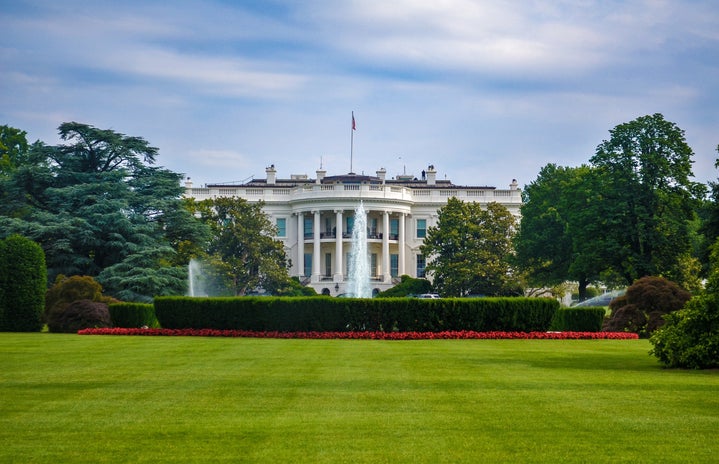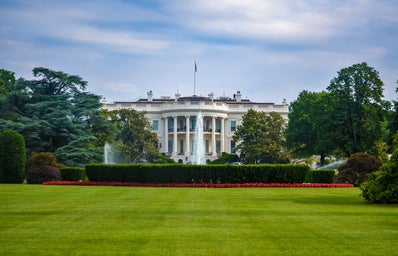On Sunday, the Philadelphia Eagles won the Super Bowl for the first time ever. As tradition goes, the team will be visiting the White House so that the president can officially congratulate them on their victory. However, several players have expressed that they will not be participating in the White House visit. These players include safety Malcolm Jenkins, defensive end Chris Long, and wide receiver Torrey Smith.
So what’s up? Why don’t they want to go? It doesn’t take a genius to figure out that a lot of Americans aren’t huge fans of Trump, but skipping out on the longstanding tradition of visiting the White House seems a little petty. Or does it?
To understand these players’ choice, we first have to get rid of the idea that sports and politics are completely separate. Sports have a unique place in the political world because of their massive audience. Where else do you see tens of thousands of people crowd into one stadium, week after week after week? Even concerts and political debate don’t draw that kind of mass appeal. The Super Bowl is consistently the most-watched American television broadcast each year. Of course it’s going to be a breeding ground for social movements!
“We read the news just like everyone else,” Torrey Smith said on Wednesday. “You see Donald Trump tweet something … We have those conversations in the locker room, just like everyone else does in the workplace. We’re very informed about what goes on, and we’re trying to continue to educate ourselves. It’s pretty special to have a group like that of folks that aren’t just socially conscious, but folks who genuinely care about people and care about learning more.”
Professional football players have more eyes on them than almost anyone in the country, so it makes sense that they would use their influence as a catalyst for social change. I’m sure you’ve heard about the controversy in which several NFL players, led by former San Francisco 49ers quarterback Colin Kaepernick, kneeled during the national anthem to protest racial injustice.
Eagles’ Chris Long is first Super Bowl player to say he won’t visit White House. ✊??? pic.twitter.com/X3rr1RU9KB
— Justice Democrats (@justicedems) February 5, 2018
49ers safety Eric Reid was one of the primary faces of this protest. He explained in an op-ed for the New York Times in September, “I approached Colin the Saturday before our next game to discuss how I could get involved with the cause but also how we could make a more powerful and positive impact on the social justice movement…We also discussed how we could use our platform, provided to us by being professional athletes in the NFL, to speak for those who are voiceless.”
Kaepernick and Reid spoke with Nate Boyer, a retired Green Beret and former NFL player, about how to ensure that their protest was peaceful and respectful. Reid says in his op-ed, “We chose to kneel because it’s a respectful gesture. I remember thinking our posture was like a flag flown at half-mast to mark a tragedy.”
This movement caught on quickly, and professional players across the country began to kneel during the national anthem before their games. (Except on Veterans Day, during which almost all players stood to show respect for veterans.) Like any social movement, this did not occur without opposition. The head of the opposition? None other than President Donald Trump.
In September, Trump said that when a player kneels, NFL owners should respond by saying, “Get that son of a bitch off the field right now, he’s fired. He’s fired!” He continued to say that kneeling for the anthem is “a total disrespect of our heritage. That’s a total disrespect for everything we stand for.”
Before the Super Bowl, Trump expressed his opposition in a more eloquent manner. He stated, “Though many of our nation’s service members are unable to be home with family and friends to enjoy this evening’s American tradition, they are always in our thoughts and prayers. We owe these heroes the greatest respect for defending our liberty and our American way of life. Their sacrifice is stitched into each star and every stripe of our Star-Spangled Banner. We hold them in our hearts and thank them for our freedom as we proudly stand for the national anthem.”
Eagles players say they won’t visit the White House
“[I’m not sending] a message [to] the president, my message has been clear all year. I’m about creating positive change in the communities that I come from”https://t.co/xeGmZHqOks pic.twitter.com/pfY9F1tOxu
— Judd Legum (@JuddLegum) February 5, 2018
Reid’s op-ed, on the other hand, states, “It baffles me that our protest is still being misconstrued as disrespectful to the country, flag and military personnel. We chose it because it’s exactly the opposite. It has always been my understanding that the brave men and women who fought and died for our country did so to ensure that we could live in a fair and free society, which includes the right to speak out in protest. It should go without saying that I love my country and I’m proud to be an American. But, to quote James Baldwin, ‘exactly for this reason, I insist on the right to criticize her perpetually.’”
Eagles wide receiver Torrey Smith explained his decision not to visit the White House on Wednesday, per NJ.com: “They call it the anthem protest. We’re not protesting the anthem. It’s a protest during the anthem. I understand why people are mad, or may be offended when someone takes a knee. My father, when he dies, is going to be buried with an American flag draped around his casket, being that he served in the Army.”
The Eagles’ decision not to visit the White House just goes to show that nothing is ever “merely political.” Politics exist affect all areas of our lives. Those who support and oppose the protests would all agree that racial injustice and disrespect of the military are not issues that we can tie up in little bows and label as “political.” It makes sense that those who are firm supporters of the NFL protests would not want to fake nice for long enough to shake hands with one of its biggest opponents. Skipping the White House trip is another way for the players to use their platform to stimulate conversation about the protests and what they stand for.
Sometimes simple is better. Chris Long, who played for the Super Bowl champs last year and skipped the White House visit, said this year, “No, I’m not going to the White House. Are you kidding me?”


